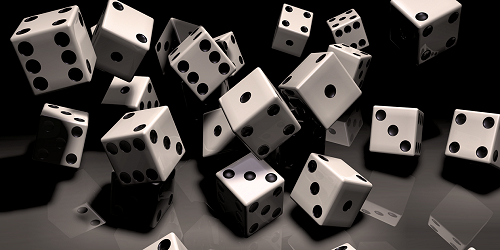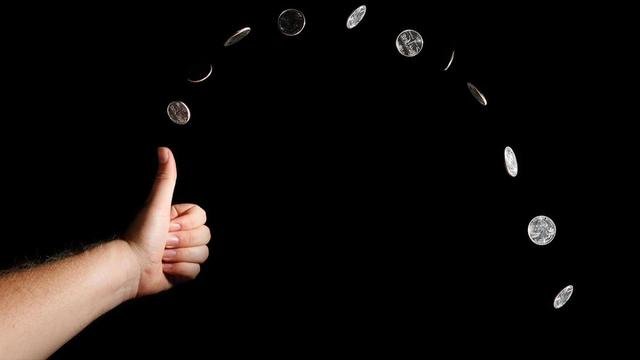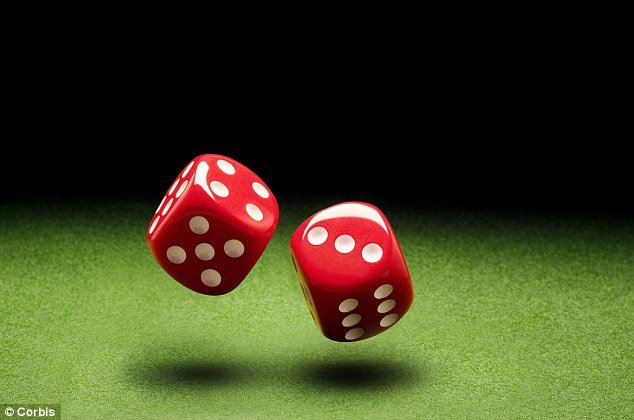Is There Truly Such Thing As a Random Event?
Is there truly random events that take place on earth? Is there truly random events in the universe?
The answer to this question is hidden in the definition of the word “random”. Throughout history the meaning of the word “random” changed dramatically. We see people using the word “random” to describe unusual things. For example, if someone were to see a video of a man in a zebra stripes suit running in the streets, then they would call it random. This is the informal definition of random: something unusual, odd or unexpected. The informal meaning of random often gets used wrong in sentences. For example people would often say that they randomly met strangers at a party. If one goes to a party one can expect strangers to be there as well. It is not odd or unexpected or even unusual to meet a stranger at a party. By saying that you “oddly” or “unexpectedly” met a stranger at a party is a sign of ignorance! This ignorance makes us believe events that are not “random” to be random. But there are cases where this informal definition of “random” is used correctly. For example by saying that I randomly got a beef burger when I ordered a chicken Burger is truly an unexpected or odd event. This outlines the informal definition of the word random.
But what about the scientific or formal definition of random, could it exist?
The formal definition of random states that some event has taken place without any pattern or method. A flip of the coin is a good example of random, right? You would toss the coin in the air and it will randomly land facing heads or tails. Once again human ignorance plays a role in the illusion of randomness. We could calculate beforehand what the result of a flip of the coin would be. If we were given enough information, on things like temperature, gravitational acceleration and friction of the coin, we could calculate with great accuracy the result of the coin flip. In fact we have already done this. Engineers and scientists have built robots that can flip a coin and makes it land on the side that they want! By definition, a “random” result generated by a flip of a coin is not random.
We also see the same not random phenomena when throwing dice. Scientists in Scotland have got equations that can calculate the result of the throw of the dice! The amount of measuring and information that we need to collect and use for calculation and prediction is too complicated for the average human in the street.
You can also see clear patterns by flipping a coin or throwing dice for a couple of thousands. The reason for this pattern is because of factors that come in play because of the imperfections of the manufacturing process of the dice or coins. Subtle weight shifts and shape imperfections have big devastating effects that kill our random results! This makes our “random” event even less random.
But what about computers, they can generate random numbers?
Computers are known to generate random numbers. Computers are essentially machines that can solve rows of complicated math problems really fast! It cannot generate something random like a number on its own without a formula! But to prevent reputation, the computer measures something from the outside. Something that can “randomly” change, like the temperature of the processor or the duration of time that a person pressed a keyboard key! This can be measured and used as a “random” factor for a formula to generate a random number! If we could see the algorithms and measure the duration of time that we pressed the key board key, then we will be able to calculate the “random number”. We see that per definition this “random” number generation is not actually random at all!
But if a throw of a dice or “random” computer number generator is not random… what is?
According to the French scientist Pierre-Simone Laplace if you could determine the direction and velocity of all particles in the universe then you could determine all future events. He said it is possible because you could calculate all the possible outcomes with these initial states of the particles and predict with accuracy how it will interacting with other particles. But this idea was long believed to be the most likely scenario, until quantum mechanics came in! As I have mentioned in all my posts! Quantum mechanics is weird. One of this weirdness is not knowing the quantum state of a particle until you measure it. This is truly random, there is no way to predict the state of a particle and it changes every time that you measure it. This made Albert Einstein mad. He commented on this true randomness and said “God does not play dice”. Unfortunately for Einstein countless of experiments have proven this phenomenon to be true.
But now the question gets interesting. If the microscopic world is truly random, why is our macroscopic world more predictable? Maybe someday we will find the exact reason!
The verdict:
Most of the things in the world may look random, but is actually something that we can predicted. This is due to human ignorance. The world is a weird and wonderful place. Sometimes we need to just lay back and look at the wonders of the world
What do you think? Do you think the world is completely random? Leave a comment down below! Please upvote and follow me if you liked what you read!
And as always
Thanks for reading.
Some good reads:
"Random" Coin tosses.
Dice throw
If You Like what you read go and follow me Here
Once again comment, upvote and subscribe!





Good article. I believe nothing is random.
Random is a good math model for some complex physical processes.
Quantum mechanics don't answer on question "why?" it only give a model to predict the dynamics of systems.
Probability and statistics gives good methods for fast measurement.
What is real what is not? Is not correct question. The correct is -- what could be a good and SIMPLE model to predict the evalution of natural object.
The laws of physics for the macroscopic world stems from those of the microscopic world once a given limit is taken. The word limit makes all the difference. All quantum effects have a strength negligible at the macroscopic level.
A good example is statistical physics where macroscopic properties are derived starting from microscopic quantities.
I guess proving that something is "truly" random would be the same at proving that God exists. Nice post
In search for a dependable
random number online generator? This is the one you need. Its uniform distribution algorithm ensures that each number is equally likely and guarantees the lowest margin of error.